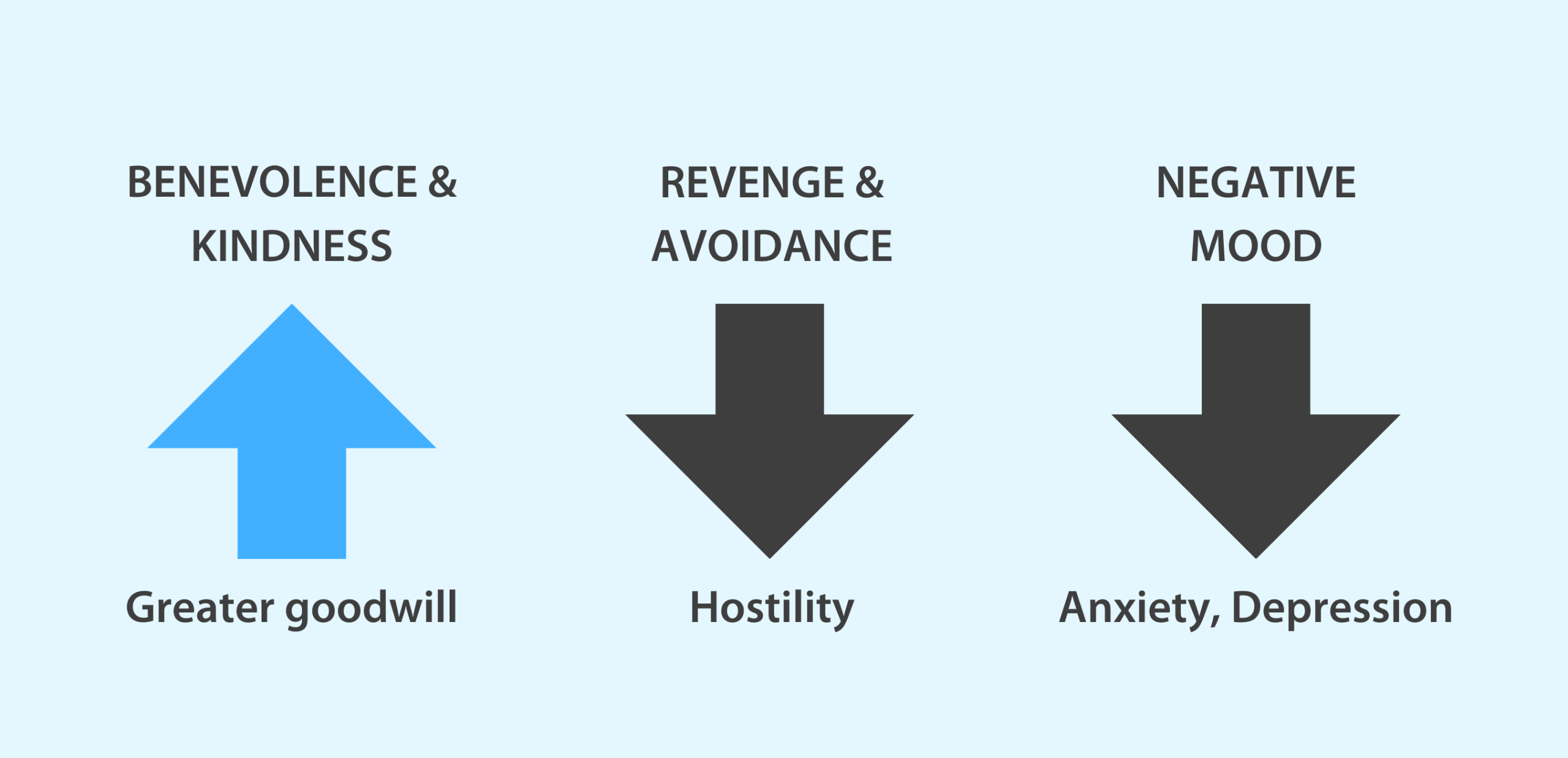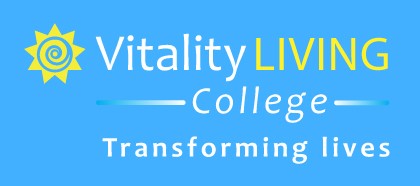EFT Tapping: Freedom to Forgiveness in 1 session – USA Today

In this blog post, we explore the growing global impact of Emotional Freedom Techniques (EFT), from powerful new research showing its effect on forgiveness in just one session, to recent features on major media platforms and psychology podcasts. Discover why EFT is fast becoming one of the most trusted tools for emotional healing, resilience, and mental well-being.
EFT Featured on USA Today
EFT was highlighted on The Today Show with myself and Dr Dawson Church, exploring how tapping can calm stress, ease anxiety, and support mental wellbeing.

EFT on the Science of Happiness Podcast
The award-winning Science of Happiness Podcast from UC Berkeley’s Greater Good Science Center featured illustrator Minnie Phan’s journey of using EFT to care for her mental health and creative resilience.
I also share the latest science and research on EFT in this episode.
Listen here: How to Tap Your Way to Calm and Clarity
New Study Published: EFT & Forgiveness
Fresh research confirms what many already experience through tapping:
- Study design: 98 adults (ages 28–72) from Australia & the U.S., randomly assigned to EFT or a control task.
- Format: Just one online EFT session.
- Results:
- Significant increases in forgiveness and benevolence. - Decline in anxiety, depression, negative mood, avoidance, and revenge.
- 9 on 10 outcomes improved significantly.

Why it matters: Traditional forgiveness programs often take 6–8 hours. EFT showed measurable impact in a single session.
This is the first study showing forgiveness can be enhanced through a brief psychosomatic method like EFT.
Effectiveness of a Single Emotional Freedom Techniques Session on Facilitating Forgiveness and Mental Health: A Randomised Clinical Trial
Stapleton, P., Le Sech, K., Toussaint, L. L., & Hsieh, H. K. (2025)
https://doi.org/10.1080/23311908.2025.2538740
Background
- Interpersonal transgressions (betrayal, abuse, discrimination, etc.) often cause deep emotional pain.
- Unforgiveness increases stress, rumination, and health risks; forgiveness reduces distress and supports well-being.
- Traditional forgiveness interventions are psychoeducational and time-intensive (6–8 hours).
- Emotional Freedom Techniques (EFT), a brief, body-based stress-reduction method, may provide a faster, accessible alternative.
Aim
To test whether one brief, online EFT self-tapping session improves forgiveness, empathy, mood, and mental health in adults compared to a control task.
Method
- Design: Pre-registered randomised clinical trial.
- Participants: 98 adults (91% female, average age ~48, Australia & USA).
- Intervention: One ~7-minute EFT video session (education + guided tapping).
- Control: Visuospatial reasoning task (emotionally neutral).
- Measures: Forgiveness (revenge, avoidance, benevolence, empathy), rumination, perceptions of injustice, mood, anxiety, and depression.
- Analysis: Pre- and post-test comparisons using repeated measures ANOVA.
Results
- EFT significantly improved 8 out of 10 outcomes compared to control.
- Largest effects:
- Increased benevolence (greater goodwill)
- Reduced revenge and avoidance (less hostility)
- Reduced negative mood, anxiety, and depression.
- Both groups improved slightly on anxiety/depression, but EFT showed twice the effect size. - Positive mood did not change significantly (suggesting forgiveness may be more about reducing negative emotions than generating positive ones).
Discussion
- A single EFT session effectively reduced unforgiving responses and improved emotional well-being.
- Effect sizes for forgiveness (d = 0.64–0.80) and mental health (d = 1.07–1.45) were comparable or stronger than longer psychoeducational forgiveness programs.
- EFT may help by directly reducing stress and calming the body’s stress response, supporting forgiveness as an emotion-based coping strategy.
- Forgiveness does not require reconciliation or forgetting, but rather reducing harmful emotions like resentment and revenge.
Strengths
- First trial showing forgiveness can be enhanced with a brief psychosomatic method (not just psychoeducation).
- Accessible: online, self-guided, requires minimal language or literacy.
- Can be used flexibly in daily life whenever unforgiveness resurfaces.
Limitations
- Short intervention (<1 hour) with no follow-up, so long-term effects unknown.
- Mostly middle-aged women; generalisation limited.
- Only minor grievances studied (not severe traumas).
- Comparison was to a non-therapeutic task, not another therapy.
Conclusion
- Unforgiveness is stressful; forgiveness is healing.
- A single EFT session can promote forgiveness by reducing stress, negative emotions, rumination, and symptoms of anxiety/depression.
- EFT shows promise as a fast, self-help, preventive tool to promote forgiveness and protect mental health.
- Further research is needed for long-term effects, younger/male populations, and comparison with other therapies.
Why This Matters
This past week reflects EFT’s growing recognition worldwide:
- Trusted by mainstream media
- Showcased on a leading psychology podcast
- Supported by new clinical research
EFT continues to emerge as an evidence-based, accessible tool for healing, resilience, and emotional freedom.

Forgiveness can feel hard, especially when there's pain, resentment, or unresolved emotions. This sequence is designed to help gently release emotional burdens and open the heart to peace — without forcing or rushing the process.
A. Tapping Sequence for Emotional Hurt or Betrayal
Forgiveness is a process that begins by gently acknowledging what still hurts. This tapping sequence supports the release of stuck emotional pain and helps create space for forgiveness.
Step 1:
Find the exact problem you want to solve.
For example, “I feel hurt and betrayed by someone I trusted.”
Step 2:
Rate the intensity.
On a scale of 0 to 10, how strong is the hurt or anger, where 0 means not important at all and 10 means very important.
Step 3:
Start with the Karate Chop point.
Repeat this statement three times while simultaneously tapping on the Karate chop point.
“Even though I feel hurt and I’m not sure I can forgive yet, I deeply and completely love and accept myself.”
Then tap on the face, upper body and finger points.
- Eyebrow: I still feel the hurt in my heart.
- Side of the Eye: It’s hard to let go of what happened.
- Under the Eye: A part of me is holding on to this pain.
- Under the Nose: I feel betrayed and disappointed.
- Chin: I want to move forward, but it’s not easy.
- Collarbone: I don’t want to carry this forever.
- Under the Arm: I’m open to finding some relief.
- Thumb: It still hurts.
- Index Finger: I don’t know if I can let go.
- Middle Finger: I feel stuck in this story.
- Little Finger: I wish I could feel lighter.
- Top of the Head: I am open to a new possibility — even if just a little.
Close by tapping on the Karate Chop once:
“Even though I’ve been holding on to this pain, I’m open to beginning the journey toward forgiveness, at my own pace.”
B. Tapping Sequence for Self-Forgiveness
Forgiving oneself can be even harder than forgiving others. This tapping sequence supports self-compassion and inner peace.
Step 1:
Figure out the problem.
Find the exact problem you want to solve.
For example, “I regret something I said or did.”
Step 2:
Rate how hard it is.
Rate how strong is the regret or guilt, from 0 to 10?, where 0 means not important at all and 10 means very important.
Step 3:
Tap in the right order.
Begin by tapping on the Karate Chop (also known as Side of the Hand):
Karate Chop: “Even though I find it hard to forgive myself, I am willing to be kind to myself and begin again.”
Repeat three times while tapping simultaneously.
Then tap on the face, upper body and finger points.
- Eyebrow: I keep replaying what I said.
- Side of the Eye: I wish I could go back and change it.
- Under the Eye: I feel ashamed or guilty.
- Under the Nose: I’ve been judging myself so harshly.
- Chin: I forgot I’m human too.
- Collarbone: I want to grow from this, not stay stuck in it.
- Under the Arm: I’m open to releasing the weight of this moment.
- Thumb: Holding on to regret.
- Index Finger: Feeling the ache of guilt.
- Middle Finger: Carrying shame that runs deep.
- Little Finger: I’ve carried this long enough.
- Top of the Head: I choose to offer myself kindness and start anew.
Close by tapping on the Karate Chop once:
“Even though I made a mistake, I choose to release the judgement and offer myself compassion.”
Repeat this process several times, each time focusing on your specific problem and rating how bad it is.
CONCLUSION
Forgiveness can be one of the most profound yet challenging emotional journeys. Whether it's forgiving others or learning to extend compassion to oneself, the process often involves facing hurt, letting go of judgement, and creating space for healing.
EFT Tapping offers a simple yet powerful way to move through this emotional terrain. By combining mindful intention with gentle tapping on specific acupressure points, EFT helps release stored emotions, shift inner narratives, and soften the grip of resentment or self-blame.
What makes EFT especially unique is its ability to meet you exactly where you are — without pressure or force. Forgiveness doesn’t need to be instant. It can unfold layer by layer, and EFT provides the safety and structure to support that process.
By integrating EFT into your healing journey, you can not only release what no longer serves you but also reconnect with your own inner peace, resilience, and freedom.
Love,
Dr Rangana Rupavi Choudhuri (PhD)
P.S. Want to discover if EFT is right for you? Book a Complimentary Discovery Call.
How To Self-Heal & Become An EFT Practitioner
Discover how EFT Tapping can help you to self-heal or to become professionally qualified as a Certified EFT Practitioner. Emotional Freedom Techniques (Tapping) is clinically proven to lower stress, tension, anxiety, past trauma to enable health, happiness and vitality.
In summary, EFT Tapping can support the journey from emotional pain to forgiveness by gently working with the body and mind. By tapping on specific acupressure points while focusing on unresolved hurt or resentment, individuals can begin to release tension, soften inner resistance, and create space for compassion and healing.
References:
Disclaimer: The information on this website is purely for educational purposes and does not in any way replace the requirement for medical and psychological diagnosis and treatment. Please seek professional medical and psychological diagnosis and advice for all medical and mental health conditions. It is advised to always book any consultations with qualified professionals.
Learn Emotional Freedom Techniques for self-healing or to become professionally qualified - More
Our other seminars:
For the full calendar of events.







